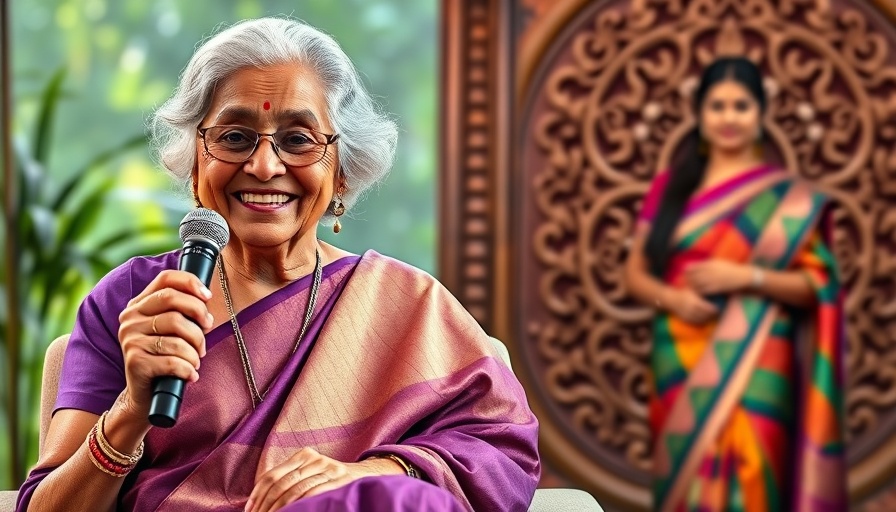
Why Ghar Ka Khana Matters in Today’s Fast-Paced World
In a time when convenience often trumps health, Sudha Murty, a respected author and philanthropist, and Rujuta Diwekar, a renowned nutritionist, urge us to reevaluate our food choices. During their insightful discussion on healthy living, they highlighted the fundamental role of home-cooked meals in our diets. Eating 'ghar ka khana'—home-cooked food—allows us to not only connect with our roots but also appreciate the nutritional value of fresh, locally sourced ingredients. Rujuta emphasizes that ‘80 percent of our food should be ghar ka khana,’ promoting the idea that simplicity and knowledge about what we consume can lead to healthier lives.
The Psychological Benefits of “Keeping Temptation Away”
Sudha Murty shared an intriguing strategy she employs: keeping high-calorie foods out of sight. This isn’t just a dietary choice, but a psychological one. By removing temptation, she finds it easier to resist indulgence. This practical tip resonates with many who struggle to maintain healthy eating habits amidst an abundance of options. Keeping temptations at bay reflects a broader approach to lifestyle management; it encourages mindful eating and helps cultivate a healthier relationship with food.
The Rich Diversity of Indian Cuisine: A Pantry of Health
Both women celebrate the diverse array of foods available within Indian cuisine, which includes everything from pulses to seasonal vegetables. This richness is not only delightful to the palate but also provides a wealth of nutrients essential for overall health. Rujuta reminds us that each dish carries a piece of our cultural history and health wisdom. Thus, exploring and appreciating local cuisines can play a pivotal role in promoting sustainable eating habits that factor in environmental responsibility.
Making Healthy Eating Accessible
As lifestyle experts, Murty and Diwekar stress that everyone can implement small changes for a healthier life. Families should aim to incorporate more home-cooked meals into their routines, setting aside the pressures of fast food. They advocate for cooking together as a way to bond and instill healthy habits in younger generations, further rooting these lifestyle choices in daily practices. Making these foods a family affair emphasizes healthier eating as not just a personal journey but a communal one.
Conscious Consumption: The Future of Eating
Looking forward, the conversation around healthy eating is shifting towards sustainability. The messages conveyed by Sudha Murty and Rujuta Diwekar inspire a growing awareness of what’s on our plates and where it comes from. By choosing to eat ghar ka khana, we not only nourish our bodies but also express care for the community and environment. This call to action reflects a modern understanding that our food choices carry weight beyond our personal health—they impact agriculture, local economies, and the health of our planet.
As we reflect on the insights shared by these two icons, it's clear that embracing a lifestyle focused on home-cooked meals is not just beneficial; it’s essential. Let’s start appreciating the bounties and richness of our food culture by making conscious choices that pave the way for healthier generations to come.
In these conversations, we find not just tips for a healthy diet, but a reminder that our food choices create a ripple effect across our lives and communities. So, as you step into your kitchen, remember the power of home-cooked meals and the happiness they can bring—not just for you, but for everyone around you.
 Add Row
Add Row  Add
Add 




Write A Comment